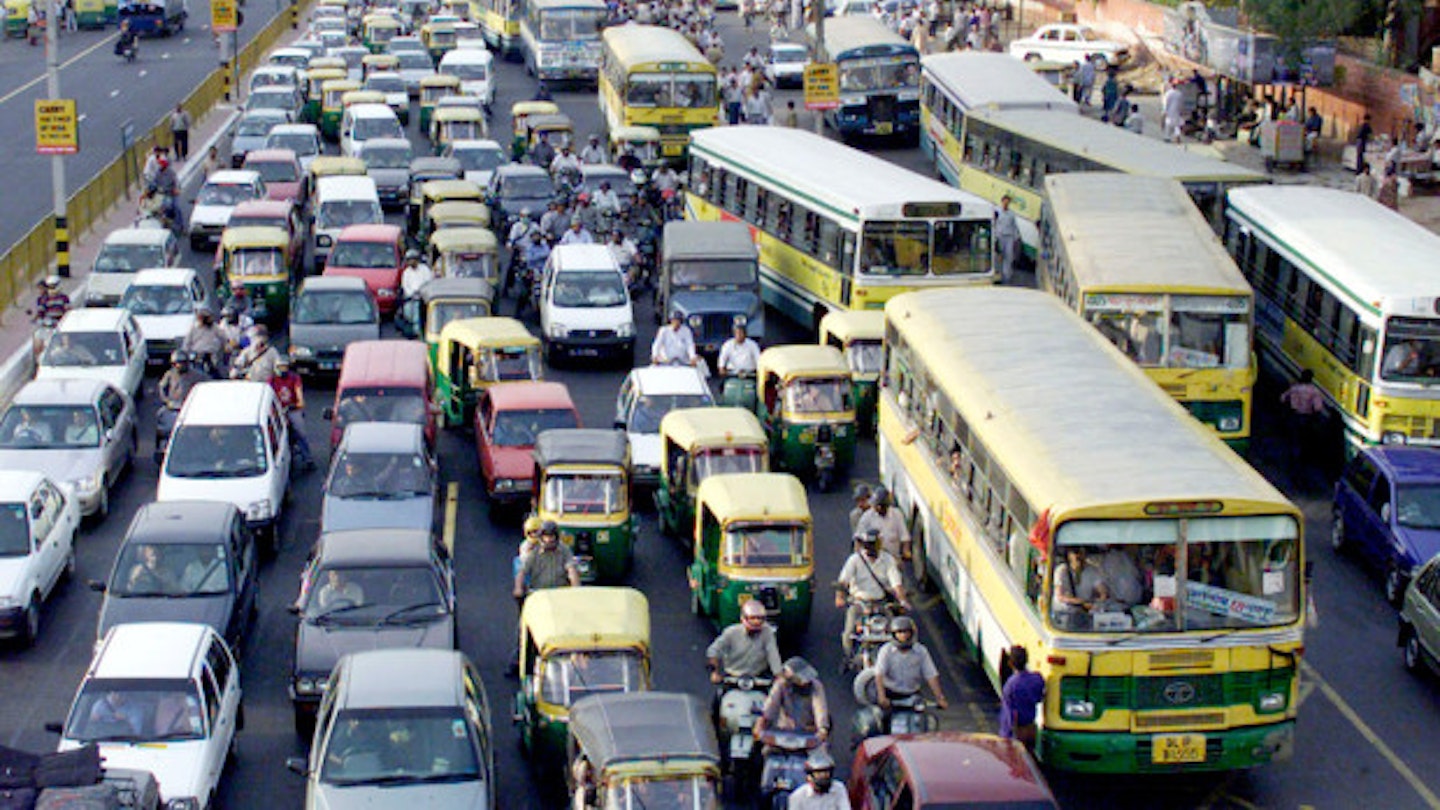The number of sexual assaults on tubes and trains in London is at a five-year high – with 403 cases in 2013, compared with 310 in 2012. It’s not great news, but it turns out our gropey, packed commutes are just the tip of the iceberg. From women-only carriages in Tokyo, to the female passengers who carry chilli spray with them for protection on their Delhi commute, meet the girls whose daily trip to work is the most stressful – and sometimes most dangerous – part of their day.
Nozomi Uematsu, Tokyo

'I have experienced sexual harassment on trains, as have quite a few of my friends, especially when we were high-school students. Men groping a woman on a train, known as 'chikan.' is a famous sexual fantasy, openly seen in Japanese pornography and it’s a serious social issue. Some guys touch your bum from behind, or put their hand up your skirt. In my case, I was sitting on a seat and a guy put my legs between his thighs while he was standing. I just waited until he got off as at that age (in my late teens), low self-esteem meant I didn’t raise my voice.
Many girls use the 'Women-Only Passenger Car', especially in rush hour, so that they can avoid physical contact with men. But this service is controversial; some say it is discrimination against men and doesn’t thoroughly solve the issues. For me, I try to avoid getting on the train at peak time. Or I use the bus instead as it has more space for its passengers.’
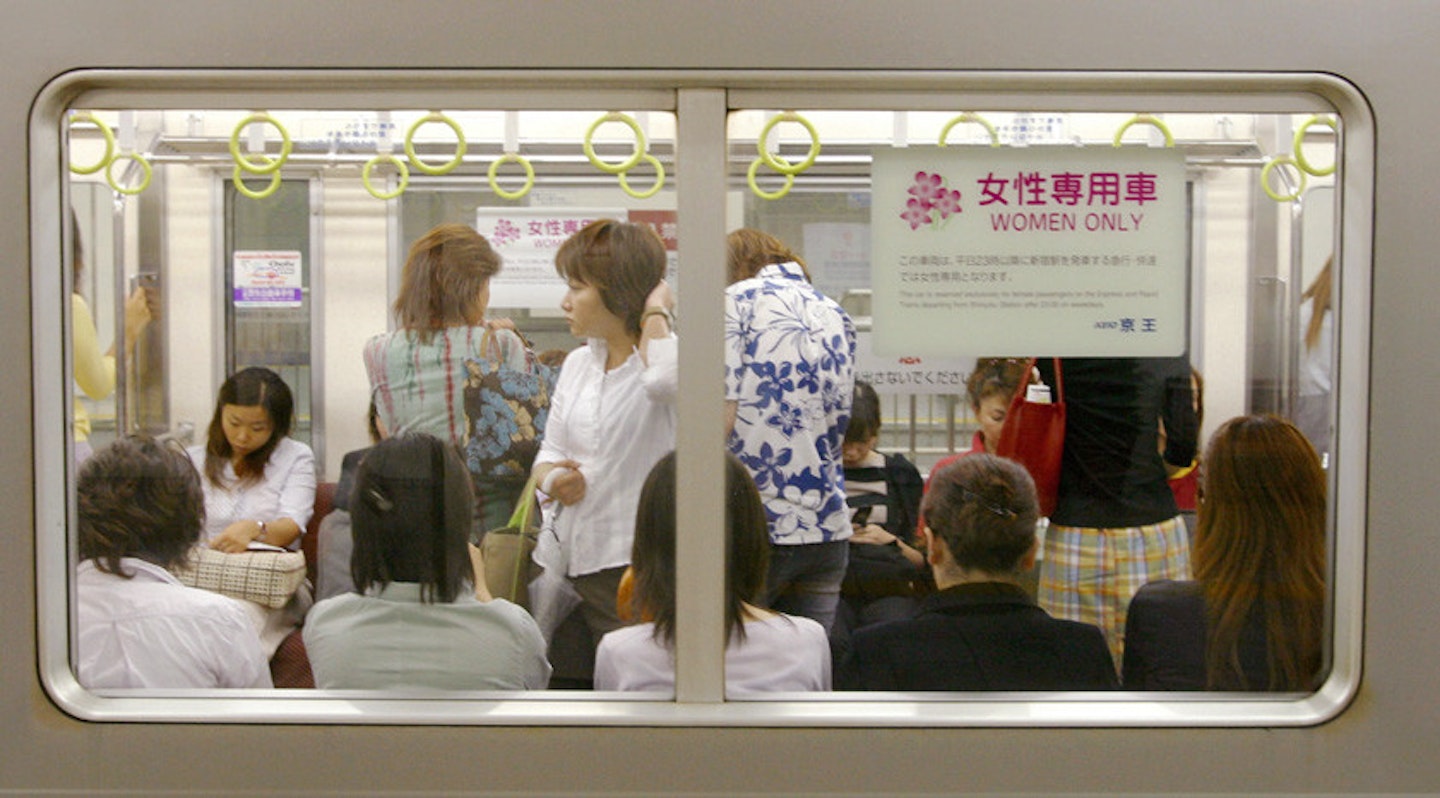
FYI: In a 2004 survey of 632 women who travel during rush-hour in Tokyo, nearly 64 per cent of the women in their 20s and 30s said they were groped while commuting.
Luisa de Lancaster, Rio

'Public transport doesn’t work well in Brazil. There are only two useless lines of metro, the buses are all full and chaotic and trains only go to really far away suburbs. I don’t feel safe in any of them – armed robberies and rapes are common and that’s why I, and most girls I know, only use cabs or drive or take the “executive buses” which are five times more expensive than the usual buses and theoretically safer. Sexual harassment on transport happens every day. You feel completely helpless – people just turn a blind eye. Some girls change clothes before getting on transport to avoid attracting men’s attention or lean against the side of the bus so that no-one is behind them to rub against them. I personally did a specific Krav Maga course for self-defense for women on public transport.'
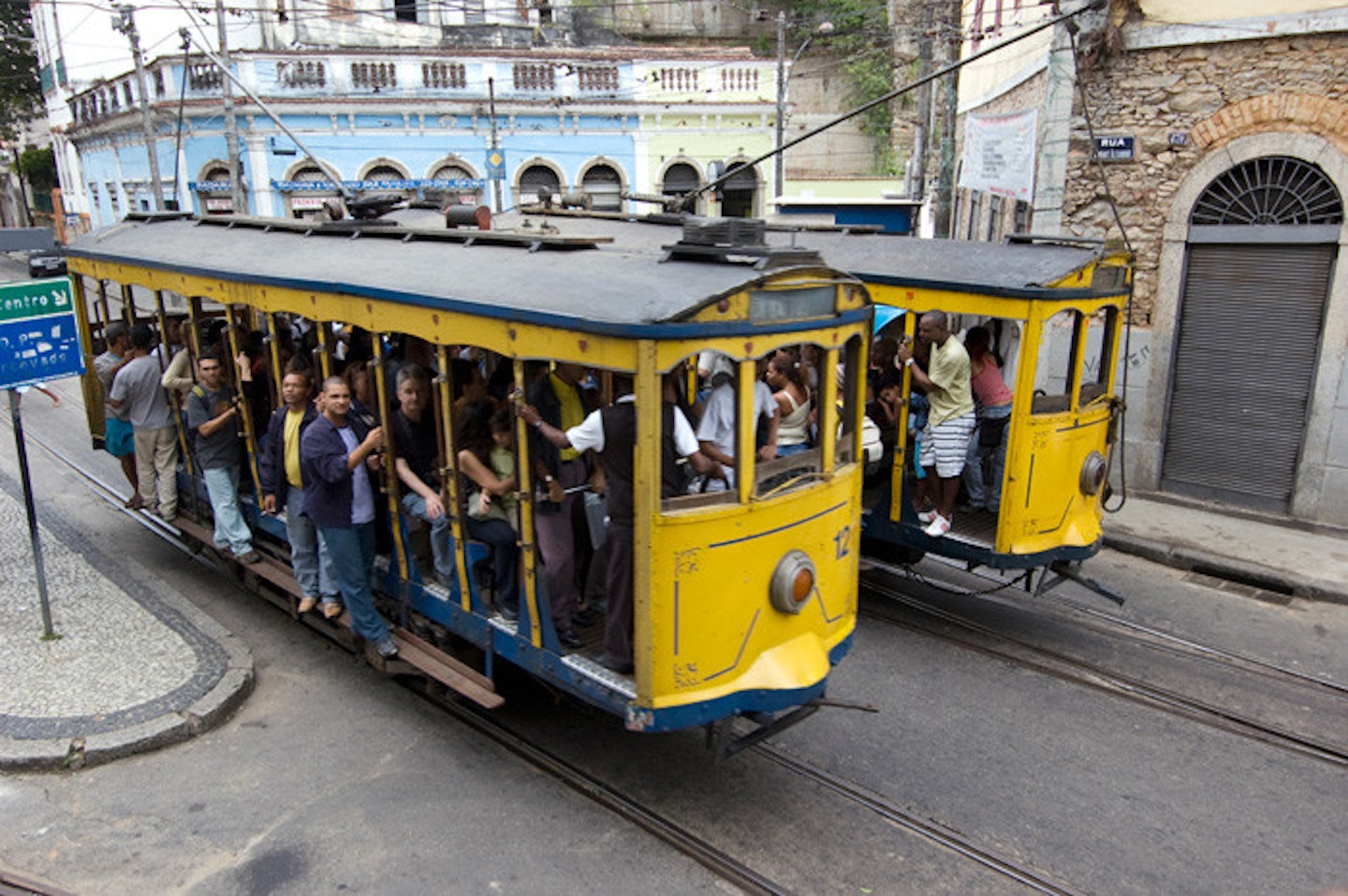
FYI: Recently, there were three arrests for sexual harassment on trains in just 48 hours in Sao Paulo.
Sara Lieberman, New York
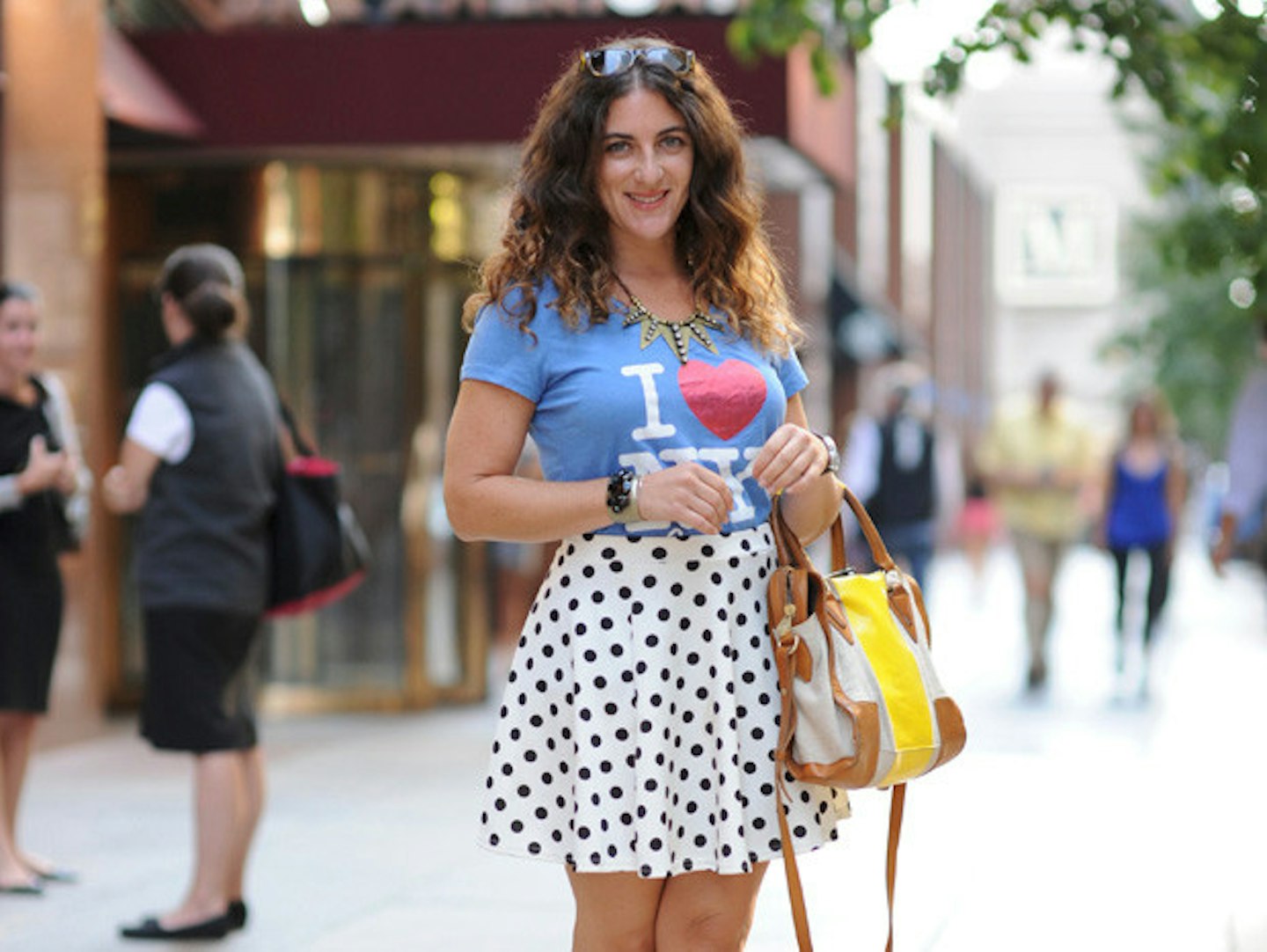
'If I'm travelling alone, I only ride the subway up until midnight to avoid weirdos and unpopulated stations. It just gets a bit sticky with strange characters later at night and I do worry about assault when it's quieter and the wait between trains is greater. Here in New York there are all sorts riding the trains. I once saw a guy whip it out and make obscene gestures towards me. I can't think about it without cringing. If I am getting the subway and it's late, I just try to be more alert and aware; I'll leave one headphone in instead of two (if at all) and won't spend the entire time looking at my phone.'
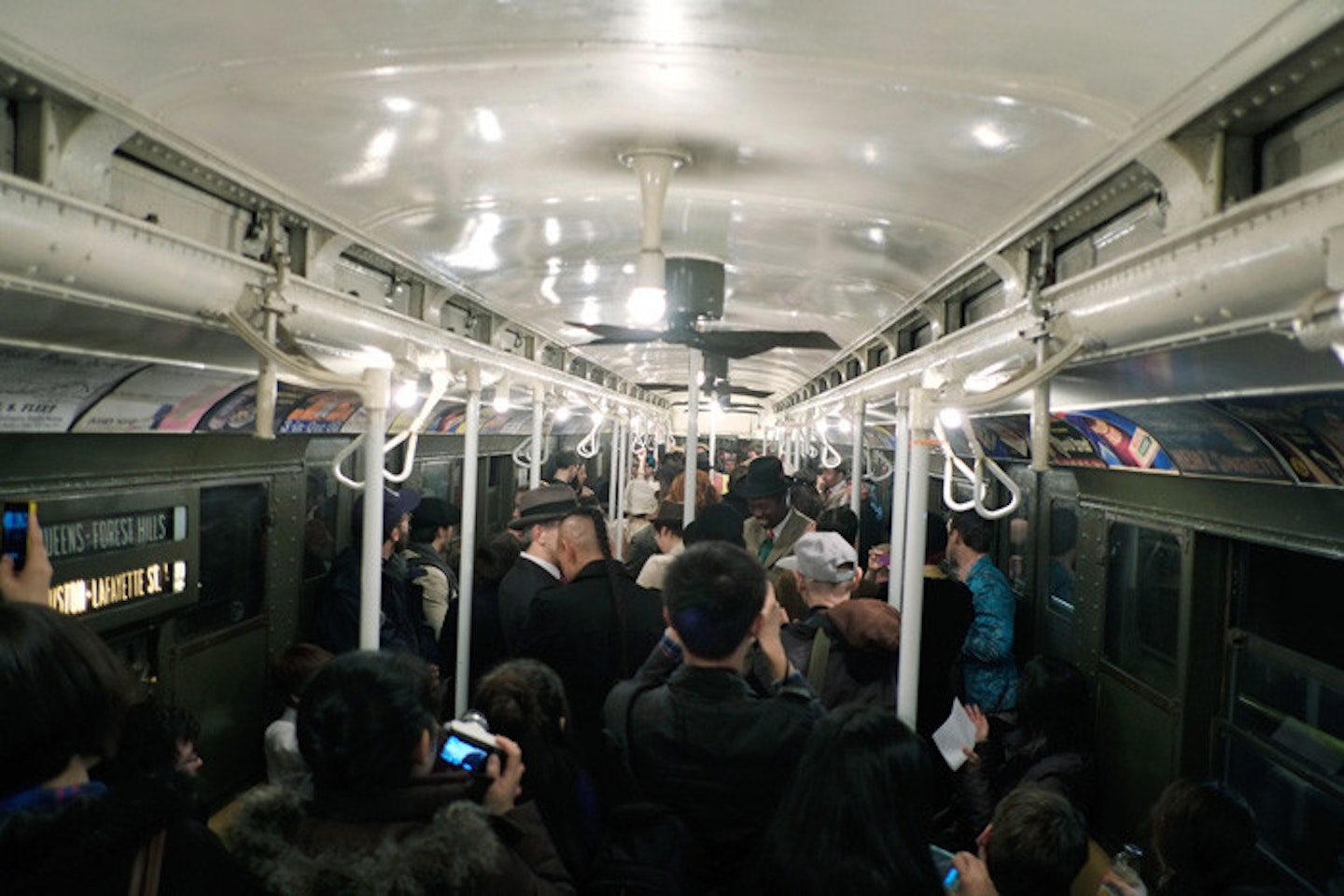
FYI: 63 per cent of New York City subway riders said they'd been harassed on a train, and 10 per cent reported having been assaulted.
Helen Roberts, New Delhi
'I moved to Delhi three years ago to launch my press agency Cover Asia Press and experiences of travelling around the city have thankfully been OK, But that’s not to say it is safe. I have heard many awful stories from my Delhi friends and staff. The buses do seem the worst and most challenging ways of travelling around the city. For the poorer families it’s cheap and costs approx five rupees for a journey (5p). But this is where the cramped conditions mean men squeeze women’s bums and breasts, and often try to kiss them. One intern at our agency slapped a man across his face for trying to kiss her on the bus.
'I also met a girl travelling from Australia, she was visiting friends in the city and she had caught an unregistered taxi back from a nightclub at 2am. The driver took her to a slum area and, when the girl realised what was happening and tried to run, the driver caught her and beat her before trying to rip her clothes off. Thankfully, two decent men spotted the attack and came to her rescue. The metro cars are divided into male and female sections so there is no need to worry about any young man rubbing himself up against you for his own pleasures – which happens a lot in India. The rape alarms that we’re encouraged to use in the UK would not work here, there is no guarantee that anyone would come and help. My junior reporter carries chilli spray in her bag, and many women carry a small knife. As a foreigner in Delhi I believe that if I looked vulnerable I’d be more of a target, so acting confident, sure of where you’re going and being aware is definitely an advantage.'
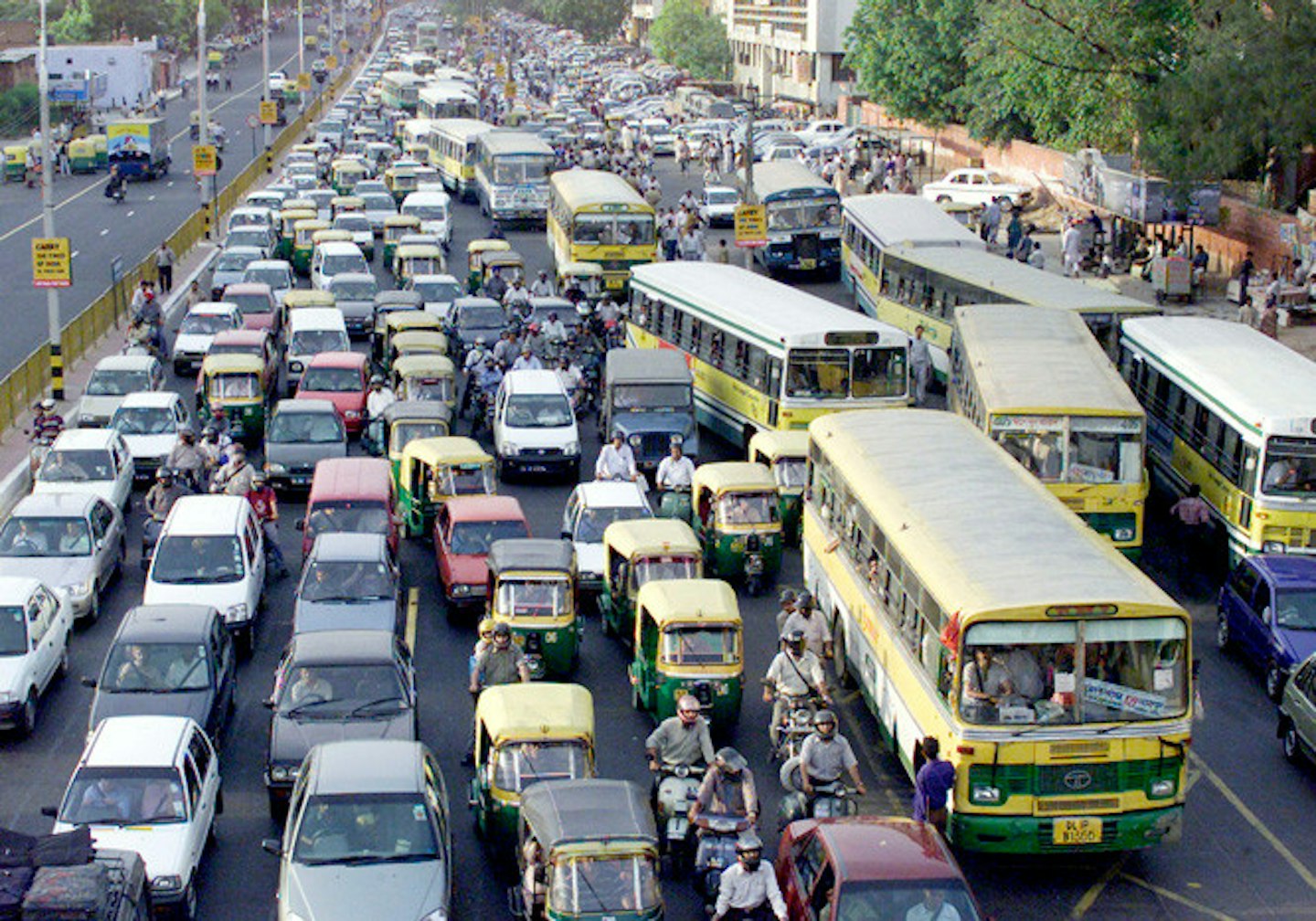
FYI: 82 per cent of women in Delhi think buses are the unsafest place to be.
Nydia Pineda De Avila, Mexico City

'In Mexico City the buses and minibuses are probably the most dangerous of all types of transport. I try not to take them but when there’s no alternative I have to and I don’t feel comfortable, I feel very exposed. Once, sitting in a very packed minibus, a man standing in front of me rubbed his penis against my arm. At the time, I felt extremely frustrated and imprisoned, although I tried not to pay attention to what was happening. I have also been more directly aggressed walking down a street near one of the largest bus stops in the south of Mexico City at nightfall. We do have women-only cars on the metro with pink stickers, but there aren’t enough and I often see hoards of woman screaming and laughing and pushing, trying desperately to get into a female carriage. There was a renowned case in the media a couple of years ago of a man dressed as a woman in the female carriages; he would get on at peak hours to touch women intimately. I try not to feel constantly vulnerable when I’m on public transport, but I stay alert and wear cardigans to cover my arms, shoulders and back. In every level and place of society, machismo prevents women from circulating safely here – the problem is not only on public transport.'
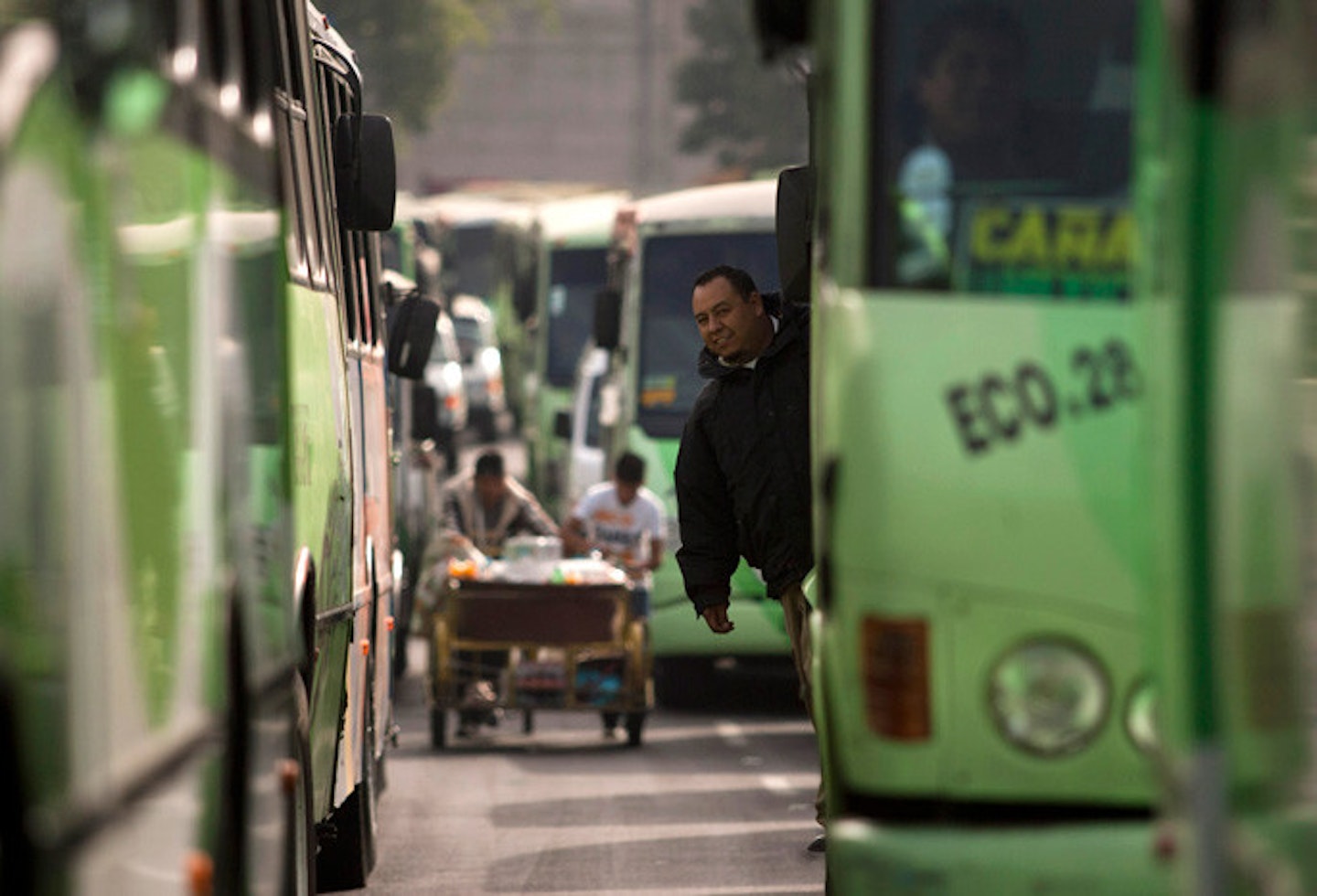
FYI: According to the Ministry of Health, around 120,000 rapes are committed in Mexico every year. One case every four minutes.
Follow Kate on Twitter @katewills
Pictures: Getty, Corbis
This article originally appeared on The Debrief.
